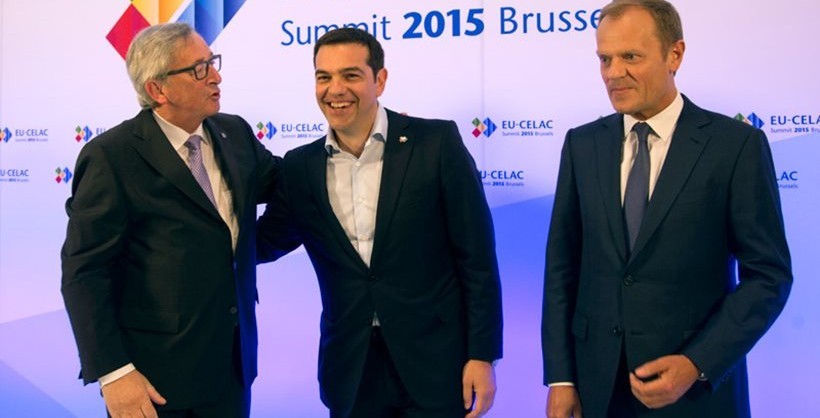EU officials said on Thursday they were hopeful Greece would drop its eleventh-hour objections to a declaration marking the bloc’s 60th birthday, sparing it a major embarrassment as it struggles for unity despite the looming departure of Britain.
The leaders of the European Union’s 27 remaining states will mark the anniversary at a gathering in Rome on Saturday, four days before Britain is due to give formal notice of ‘Brexit’.
Greece has threatened not to sign the Rome declaration setting out the bloc’s vision of its future. It wants the text to make a clearer commitment to protecting workers’ rights – an issue on which it is at loggerheads with international lenders who want it to adopt more reforms in return for new loans.
“The negotiations on the draft Rome Declaration have ended as the text was finalised by the EU27,” an EU source said. “Only Greece has a general reservation on the text.”
The source added the chairman of EU summits, Donald Tusk, had spoken to Greek Prime Minister Alexis Tsipras on the matter. “This leaves us relatively confident that it will be possible for Tsipras to sign the Rome Declaration on Saturday.”
A senior EU diplomat said tweaks to the draft declaration highlighting the need to fight unemployment should satisfy Athens: “For Tsipras to underline his concerns about employment, one can understand. But I don’t think in the end this will hold up the text.”
Another EU diplomat said any attempt by Athens to win leverage on the international debt talks by holding off in Rome should not succeed: “We won’t be blackmailed by one member state which is linking one EU issue with a totally different one.”
The person added that if Greece did not come on board by Saturday, the document – designed to emphasize unity and solidarity – could be adopted in Tusk’s name rather than as a joint statement by 27 EU states and Brussels institutions.
That would, however, be another symbolic setback for the bloc, mired in internal divisions and weakened by Britain’s decision to leave.
EAST-WEST RIFT
As well as Greece, Poland indicated on Thursday it might also refuse to endorse the declaration, though diplomats played down the threat.
Warsaw is particularly opposed to a ‘multi-speed Europe’, an idea promoted by Germany, France and Brussels, among others, to help improve decision-making in the post-Brexit EU.
This would allow countries keen to deepen cooperation in specific areas to press ahead without waiting for the whole bloc. Poland and some other eastern EU countries fear they could end up as second-class members, increasingly left behind by wealthier west European nations.
“If the declaration does not include the issues which are priorities for Poland, we will not accept the declaration,” Polish Prime Minister Beata Szydlo said.
But the sole sentence in the Rome declaration about this concept has been softened to accommodate Warsaw’s concerns, meaning any last-minute veto is highly unlikely.
Diplomats in Brussels said Warsaw had already approved the draft text earlier this week and said Szydlo’s comments appeared designed for domestic consumption and to allow her to claim a diplomatic victory at the summit.




































